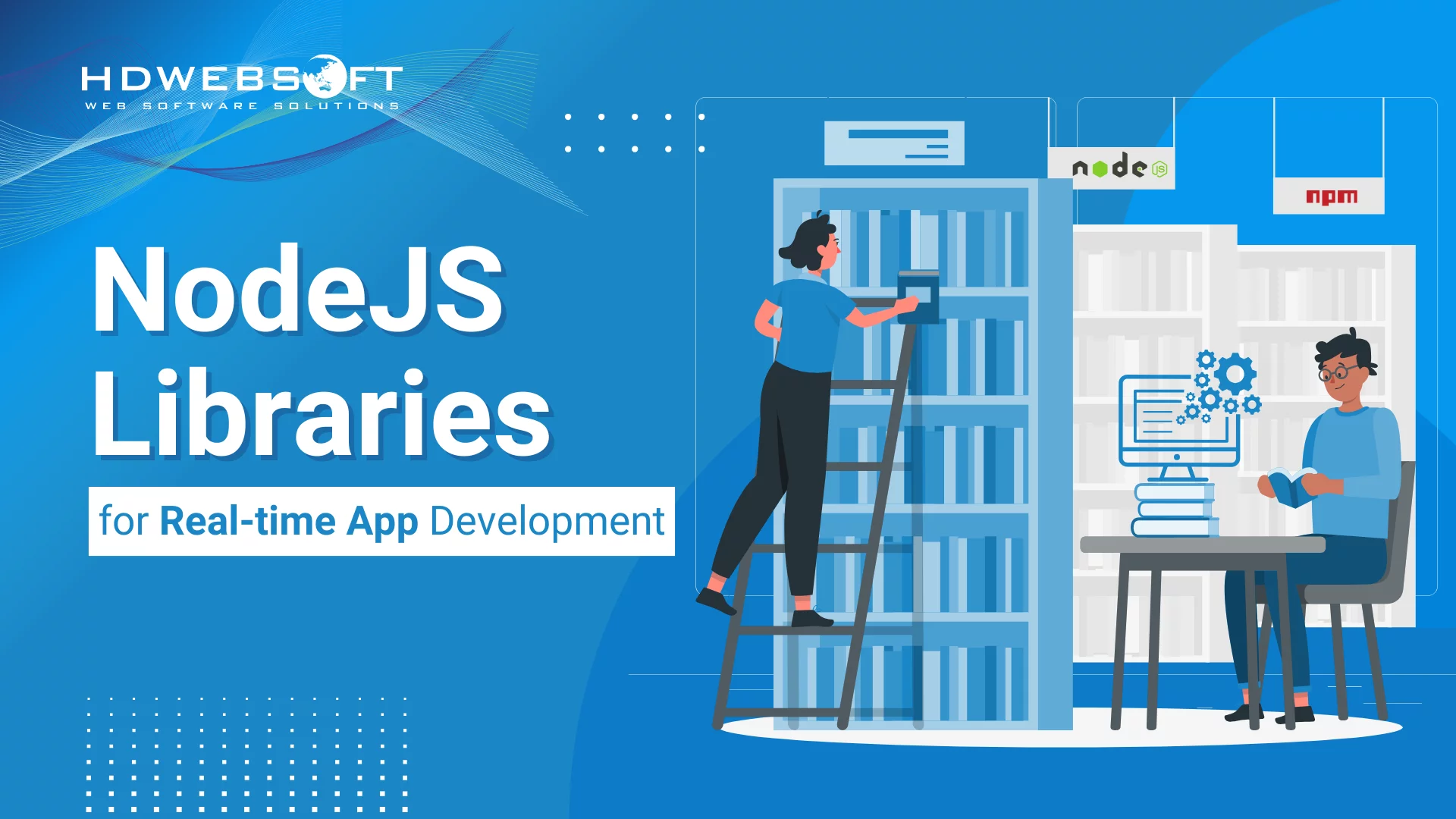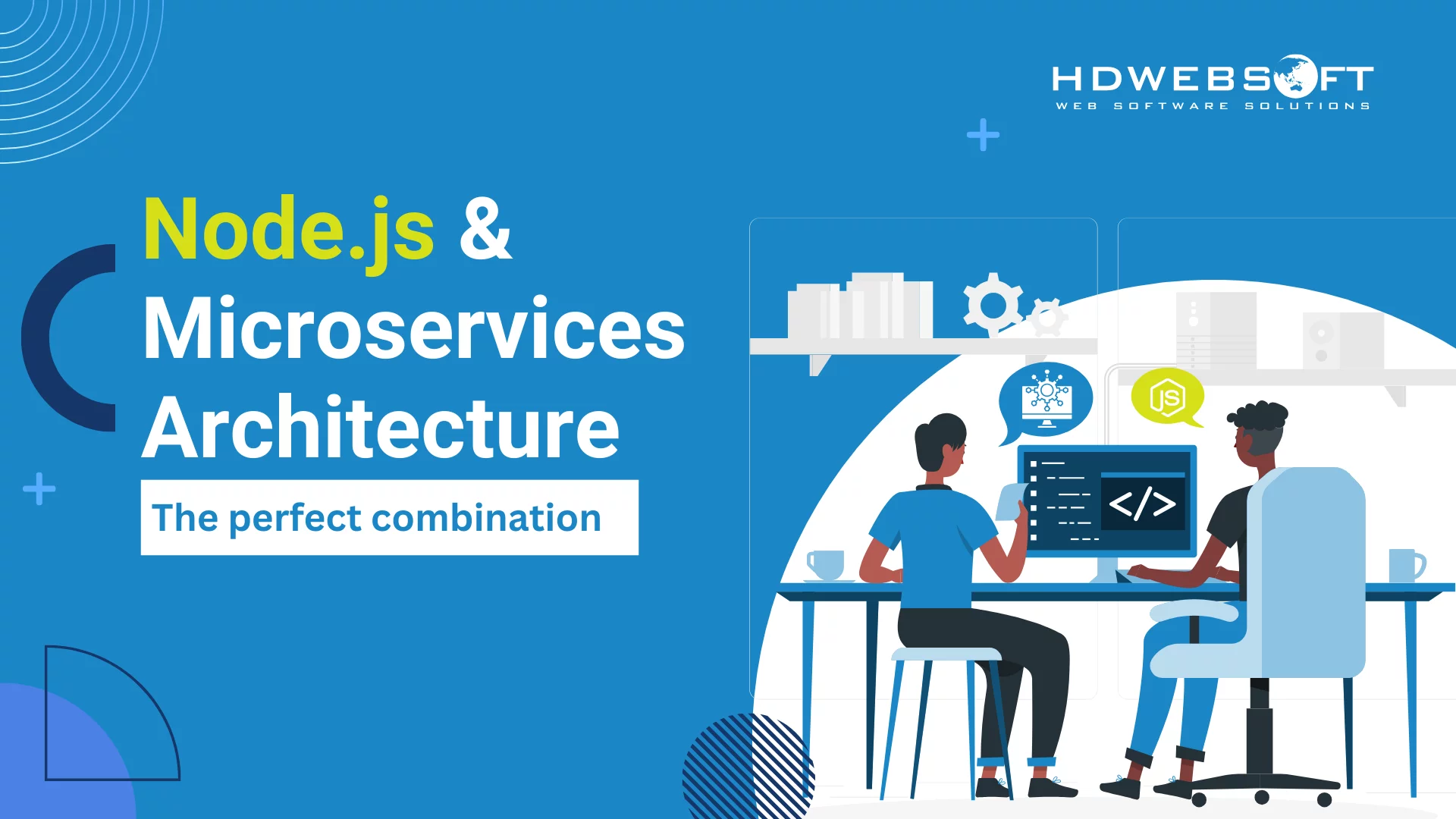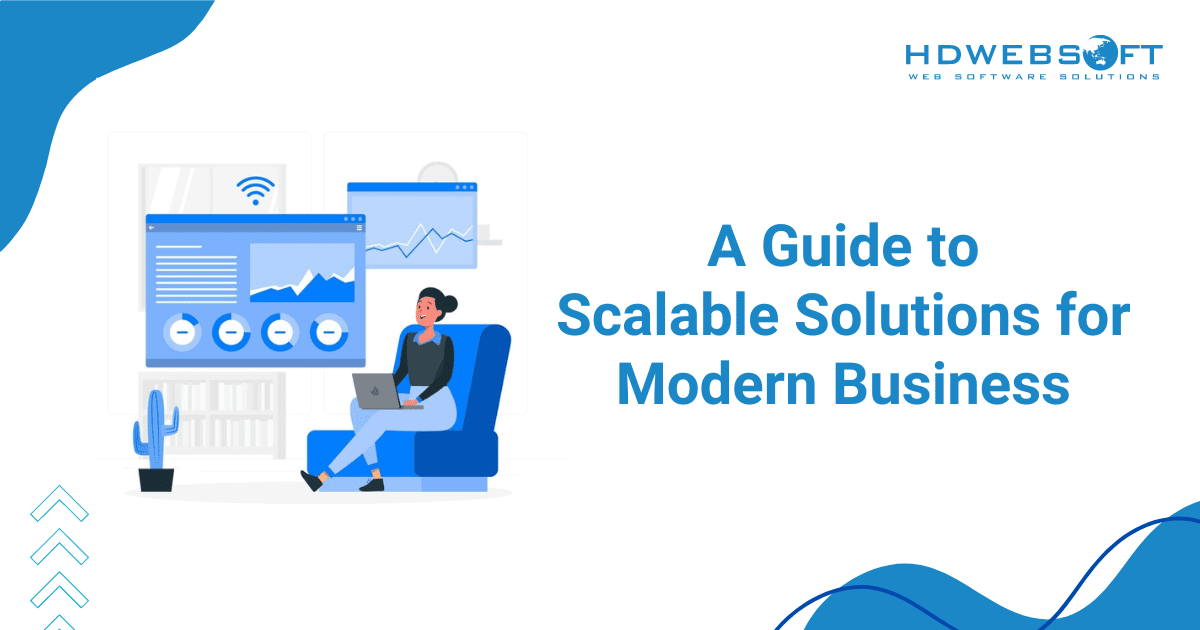
A Guide to Scalable Solutions for Modern Business
Scalable solutions are essential in today’s fast-paced and ever-evolving business landscape, where companies constantly search for ways to grow without encountering operational bottlenecks. As businesses expand, their technology and infrastructure must evolve with them. These solutions are designed to grow alongside your business. They ensure that your operations continue running smoothly without overwhelming your systems as you add more customers or enter new markets.
In this blog, we’ll explore what scalability means in modern business and why scalable solutions are essential for growth. We’ll also go through the types of software solutions that can scale and how businesses can successfully build scalable software.
What is Scalability?

Scalability refers to the ability of a system or solution to handle increasing demand without sacrificing performance. In the context of technology and business, scalability is essential for growth. When we talk about scalable solutions, we’re referring to tools or systems that can expand efficiently as the business grows. These solutions do so without requiring a complete overhaul or causing operational bottlenecks.
For example, a business may start small but experience rapid growth over time. In such cases, a scalable software solution can support that growth by adjusting its capacity based on demand. Consequently, this ensures smooth operations as the company adds more users, data, or transactions.
Large-scale software, like Amazon Web Services (AWS) or Salesforce, is built with scalability in mind. These platforms can effortlessly accommodate everything from small startups to global enterprises with millions of users. Resultantly, businesses can save time and money by using scalable software solutions while avoiding disruptions when scaling up their operations.
In short, scalability allows businesses to future-proof their systems, ensuring they are equipped to handle growth without sacrificing efficiency or performance.
The Importance of Scalable Solutions for Business

Scalability is not just a luxury, it’s essential for modern businesses that want to remain competitive. As companies grow, they need technology that can grow with them. A lack of scalability can lead to serious problems, such as slower system performance, reduced customer satisfaction, and higher operational costs due to inefficient processes.
Investing in scalable solutions means preparing your business for long-term growth while minimizing the need for costly, disruptive upgrades. According to recent data, 85% of enterprises will rely on a multi-cloud strategy by 2025. This statistic has underlined the importance of cloud-based, scalable infrastructures in modern business operations.
Additionally, it’s predicted that by 2026, the global spending on the cloud computing market will be worth $947.3 billion. As it allows for smoother transitions as your business scales up, ensuring customer satisfaction and operational efficiency remain consistent.
Types of Scalable Software Solutions
Below, we’ll explore the different types of scalable software solutions that businesses can leverage to ensure they’re ready for expansion:
Cloud-Based Solutions
Cloud-based platforms are the gold standard when it comes to scalable solutions. Instead of relying on physical infrastructure that can quickly become outdated or overwhelmed by growing demand, cloud solutions offer elasticity. Moreover, they allow businesses to scale up their resources—whether that’s storage, computing power, or bandwidth—on demand.
Cloud platforms such as Microsoft Azure, and Google Cloud make it easy to scale without investing in new hardware. Additionally, they help businesses avoid significantly increasing operational costs.
For example, if a business experiences a sudden surge in website traffic, a cloud-based hosting service can automatically allocate more resources. This ensures that the influx is handled without affecting performance. Ultimately, it makes cloud solutions ideal for companies that expect rapid growth or experience seasonal fluctuations in demand.
Enterprise Resource Planning (ERP) Systems
As businesses grow, their operations become more complex. This is where Enterprise Resource Planning systems come into play. ERP solutions help manage critical business processes, from supply chain operations and finance to HR and customer relationships, all from a single platform.
The beauty of ERP systems like SAP or Oracle NetSuite lies in their scalable solutions. They can start small, supporting a limited number of users and basic functions. However, they can easily expand to accommodate more users, larger data sets, and additional functionality as your business grows.
This modular approach ensures that businesses only pay for what they need in the present. Meanwhile, it also maintains the flexibility to add more capabilities as they scale.
Customer Relationship Management (CRM) Systems
One of the most critical components of business growth is managing customer relationships, where CRM systems come into play. CRMs help businesses organize and manage customer interactions, data, and sales processes, all while improving communication and collaboration across teams.
Scalable CRM systems, such as Salesforce or HubSpot, are designed to grow with your customer base. They allow businesses to add more users, handle larger customer data sets, and integrate new sales channels as they expand.
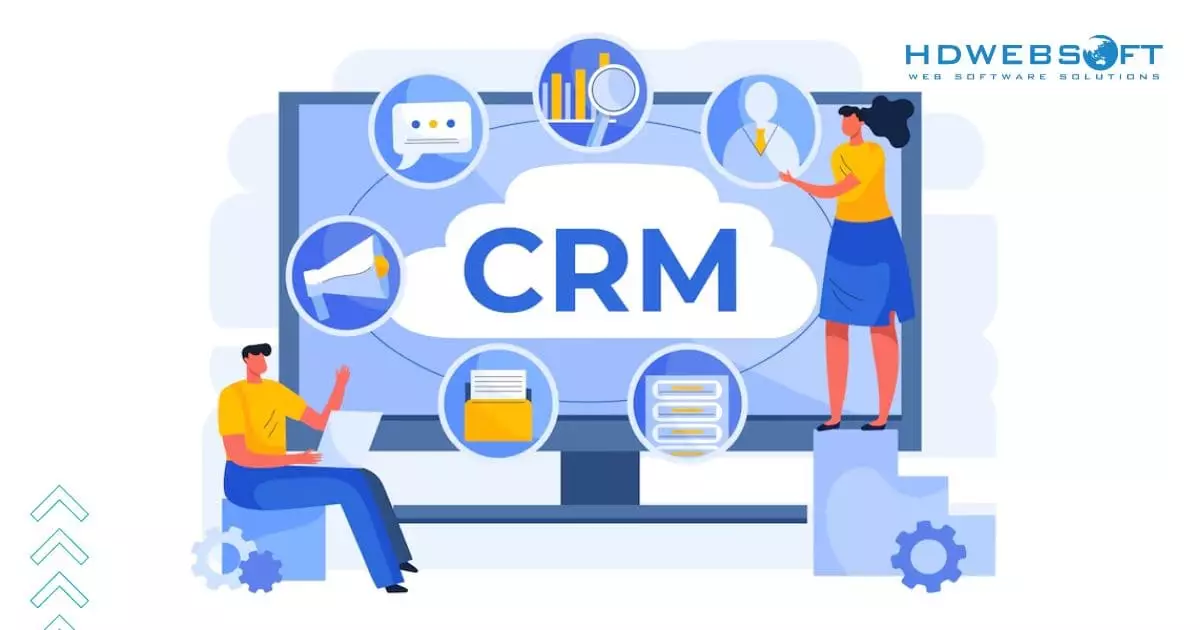
CRM system is one of the scalable solutions that help businesses foster relationships with their customers.
For example, a small startup can start with a basic CRM package that fits their budget and needs. Still, as they gain more customers, they can upgrade to more robust versions with advanced analytics, automation, and reporting tools. These scalable solutions’ flexibility is key for businesses looking to maintain strong customer relationships during periods of rapid growth.
If you’re wondering which one your business needs more, let’s read ERP or CRM is the Right Choice for Business?
E-Commerce Platforms
E-commerce businesses often face the challenge of managing fluctuating website traffic, particularly during promotions or seasonal sales. A scalable e-commerce platform like Shopify Plus, Magento, or BigCommerce ensures that online stores can handle increased traffic and transactions. A skilled Shopify developer can enhance this capability, allowing tailored software solutions that maintain performance without compromising the user experience.
These platforms allow businesses to expand product catalogs, support more payment gateways, and offer personalized shopping experiences as they grow. The best part is that these scalable software solutions are cloud-based. This means they can automatically adjust to higher traffic levels, preventing crashes or slowdowns during peak times.
Data Management Platforms (DMP)
As businesses expand, the amount of data they collect grows exponentially. To handle this effectively, they need scalable solutions in the form of DMPs. These systems help businesses gather, organize, and analyze large sets of data from various sources to improve decision-making and personalize advertising efforts.
DMPs are built to manage and scale with massive datasets. Whether a company is handling data for a thousand users or a million, these platforms can easily adapt. Furthermore, they can store, process, and derive insights from increasingly larger pools of data.
As businesses expand their marketing efforts and customer reach, DMPs provide the tools necessary to continue delivering targeted, data-driven campaigns. Additionally, integrating robust AI marketing software enhances these capabilities, enabling smooth automation and optimization of campaigns. This synergy is crucial for operating them at scale.
Key Components of a Scalable Solution
Having scalable software in place is crucial to ensuring that operations run smoothly even as demand increases. But what makes a solution truly scalable? Several key components are essential for building a system that can adapt to a business’s evolving needs. Let’s examine these critical elements in detail.
Elasticity
One of the foundational components of scalable solutions is elasticity. It refers to the ability of a system to adjust its capacity according to demand. For example, cloud infrastructure allows businesses to scale resources like storage, processing power, or bandwidth up and down as needed.
Elasticity is vital for businesses that experience fluctuating workloads. This is especially true for e-commerce platforms during peak shopping seasons or media streaming services when new content is released. Without elasticity, businesses would either overinvest in unused resources or experience system slowdowns during periods of high demand.

During peak or shopping seasons, scalable solutions adjust the capacity so the software won’t break down.
Modularity
Modularity is another essential component of scalable software. It means a system is designed in discrete units or modules, each with a specific function that can be modified, replaced, or scaled independently.
This approach allows businesses to add new features or scale specific components. For example, they can increase server capacity for data storage without having to redesign the entire system.
In contrast, a monolithic system, where all components are interconnected, can make scaling more difficult and expensive. Modular systems offer scalable solutions that allow businesses to grow their operations in a flexible and efficient way.
Automation
As businesses scale, it is evident that manual processes become increasingly inefficient and prone to error. Consequently, automation emerges as a key component of scalable software since it allows repetitive tasks to be handled automatically, thereby reducing the need for human intervention. From provisioning servers to processing customer orders, automation helps businesses maintain productivity and performance as a result of their growth.
Tools like CI/CD pipelines and infrastructure as code (IaC) automate the deployment and management of scalable systems. As a result, they enable businesses to scale up quickly while maintaining consistency and minimizing downtime.
Efficiency
Scalability is not just about adding more resources; rather, it’s also about ensuring that your system remains efficient as it grows. Indeed, an inefficient system will require disproportionately more resources as it scales, leading to high costs and diminishing returns. Therefore, scalable solutions need to optimize resource usage, ensuring that performance remains high without significantly increasing costs.
Efficiency can be achieved through a variety of means, including optimizing code and improving database performance. Additionally, utilizing caching mechanisms can help reduce the load on servers. When a solution is efficient, it can scale more easily while keeping operational costs under control.
Security
As businesses scale, so do their vulnerabilities. More data, more users, and more transactions mean a greater need for robust security measures.
Because of this, scalable software must incorporate security as a core component. This approach ensures that as the system grows, it remains protected against threats. Specifically, the activities include implementing encryption for data, establishing secure access controls, and conducting regular security audits.
For example, the cloud service provider offers scalable security features, including multi-factor authentication, firewalls, and encryption at rest. These features help businesses maintain a high level of security even as their operations expand.

As a component of scalable software solutions, security secures important business data if implemented correctly.
Adaptability
Finally, adaptability is a crucial element of scalability. Scalable solutions should be flexible enough to adapt to new business needs, technologies, and market changes.
As a business evolves, its technology stack must be able to incorporate new features, integrate with emerging tools, and respond to changing customer demands. In this context, scalable software solutions that are built with adaptability in mind enable businesses to pivot quickly. This capability is essential whether they’re entering new markets, launching new products, or adopting new business models.
In short, adaptability will make sure of long-term success as businesses grow and the industry landscape shifts.
How to Build a Scalable Software
Creating scalable software involves thoughtful planning, the right technologies, and smart design choices. Let’s break down the steps to building software that can scale efficiently as your business grows:
Start with a Strong Architecture
The foundation of any scalable solutions lies in its architecture. To ensure that your software can scale, it’s important to design with scalability in mind from the outset.
A common approach is to adopt a microservices architecture instead of a monolithic design. In a monolithic system, all features and functions are bundled together, making it difficult to scale specific components without affecting the entire system.
On the other hand, a microservices architecture breaks down the application into smaller, self-contained services. Each service focuses on a specific functionality, such as user authentication or payment processing, and can be scaled independently. This approach allows businesses to scale different parts of their system as needed without having to overhaul the entire application.
Leverage Cloud Infrastructure
One of the most important elements in building scalable software is the use of cloud infrastructure. In fact, cloud platforms like AWS provide virtually unlimited scalability through their elastic infrastructure. Furthermore, these platforms allow businesses to add or reduce computing resources on demand, meaning you only pay for what you use.
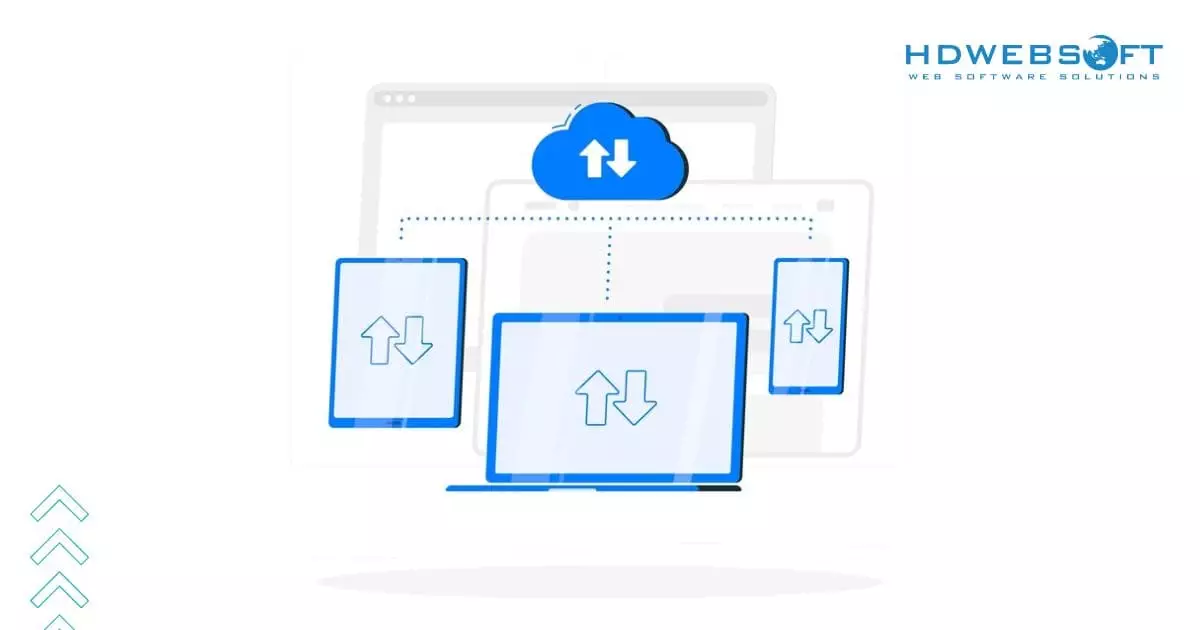
Cloud platforms offer many benefits to businesses, such as data storage and transfer.
For example, if your app experiences a sudden surge in users, scalable solutions like cloud services can automatically scale up servers, storage, and bandwidth. This capability helps handle the increased traffic without causing downtime or performance issues. Cloud infrastructure also enables businesses to scale globally, offering low-latency services to users in different regions without having to invest in expensive physical data centers.
Use Load Balancing and Auto-Scaling
To build truly scalable software, your system needs to be able to distribute workloads effectively. Load balancing is a technique that spreads user requests across multiple servers to ensure no single server is overwhelmed. This is crucial for maintaining performance during high-traffic periods.
Additionally, most cloud platforms offer built-in load balancing and auto-scaling features. The technique allows your system to automatically adjust the number of running servers or instances based on current demand. For example, during peak usage times, your system can spin up additional servers to handle the load. Then, it can scale them down during periods of low activity to save costs.
Optimize Database Performance
As businesses scale, the amount of data they collect, process, and store grows exponentially. To ensure that your scalable solutions can scale alongside this data, it’s essential to optimize your database performance. One way to achieve this is by using distributed databases like NoSQL systems. These systems can handle large volumes of data by spreading the load across multiple servers.
Another key technique is database sharding, where large datasets are divided into smaller, more manageable pieces (or shards), each hosted on a different server. This allows your database to scale horizontally, meaning you can add more servers to increase capacity. In contrast, this approach avoids relying on a single, larger server that may eventually hit its limit.
Design for Fault Tolerance
As your software scales, the likelihood of experiencing failures increases—whether due to hardware issues, network outages, or software bugs. Building scalable software means designing systems that can withstand failures without affecting the entire application. This is known as fault tolerance.
Fault-tolerant systems are designed to continue functioning even if some components fail. For instance, if one server goes down, scalable solutions should automatically redirect traffic to other servers without users noticing any disruption. Redundancy, backups, and using multiple availability zones (in cloud services) are key strategies for achieving fault tolerance and ensuring system reliability as your business grows.
Embrace CI/CD
Scalability isn’t just about handling more users or data. It’s also about maintaining the ability to update and improve your software without causing downtime. In this context, CI/CD pipelines enable automated testing and deployment of new code changes. Hence, this allows teams to make incremental updates to the software without waiting for large, disruptive releases.
Moreover, CI/CD pipelines ensure that as your software scales, you can continue to improve functionality and fix bugs. Additionally, you can add new features with minimal impact on end users. Automation tools in this process help maintain efficiency and stability, even as the software grows more complex.
Conclusion
As businesses continue to adapt to the digital age, the need for scalable solutions has never been greater. Whether it’s cloud infrastructure, CRM systems, or ERP platforms, choosing technology that can grow with your business ensures long-term success and operational efficiency.
The modern business landscape demands flexible, adaptable solutions and is capable of handling future growth without breaking the bank or causing disruptions.
By investing in scalable technology today, businesses can confidently face tomorrow’s challenges armed with the tools they need to thrive.





